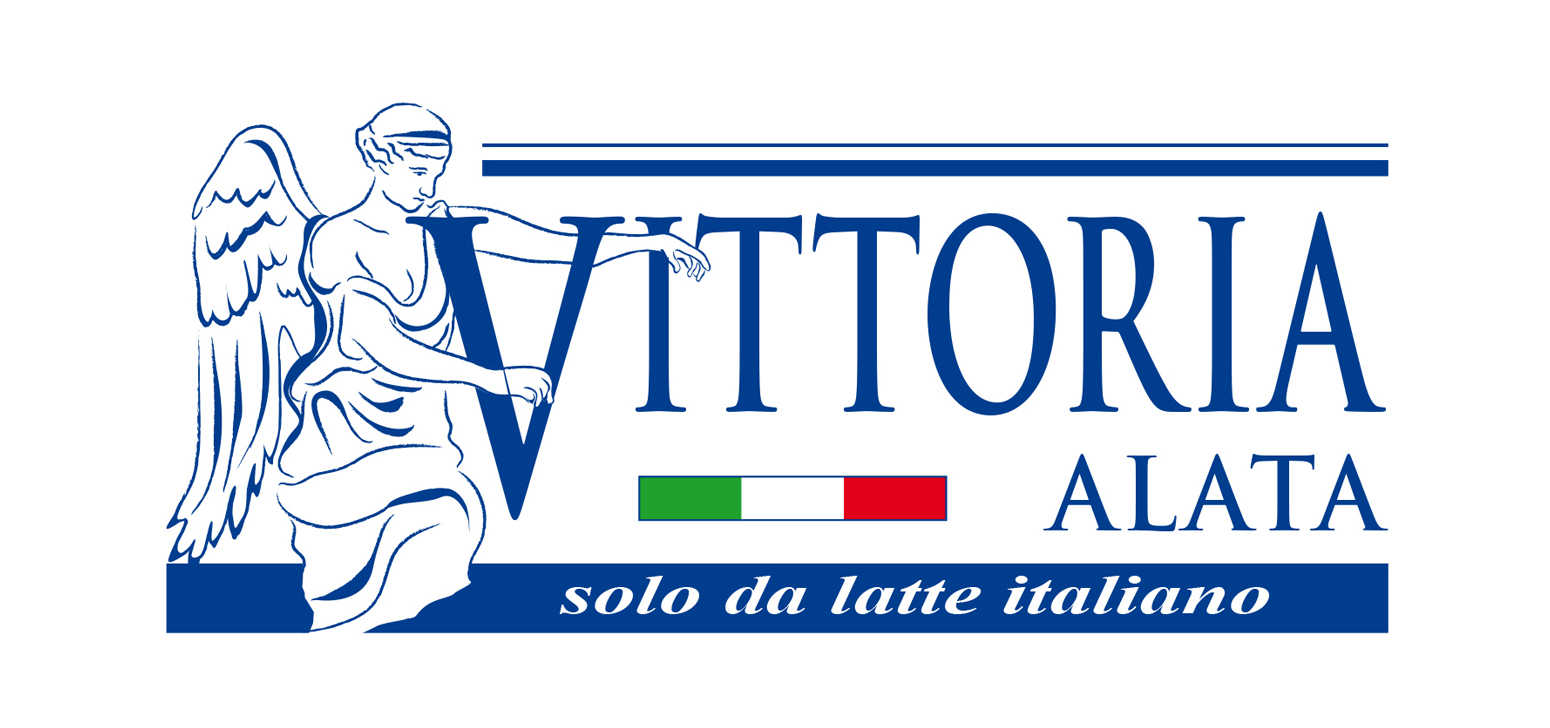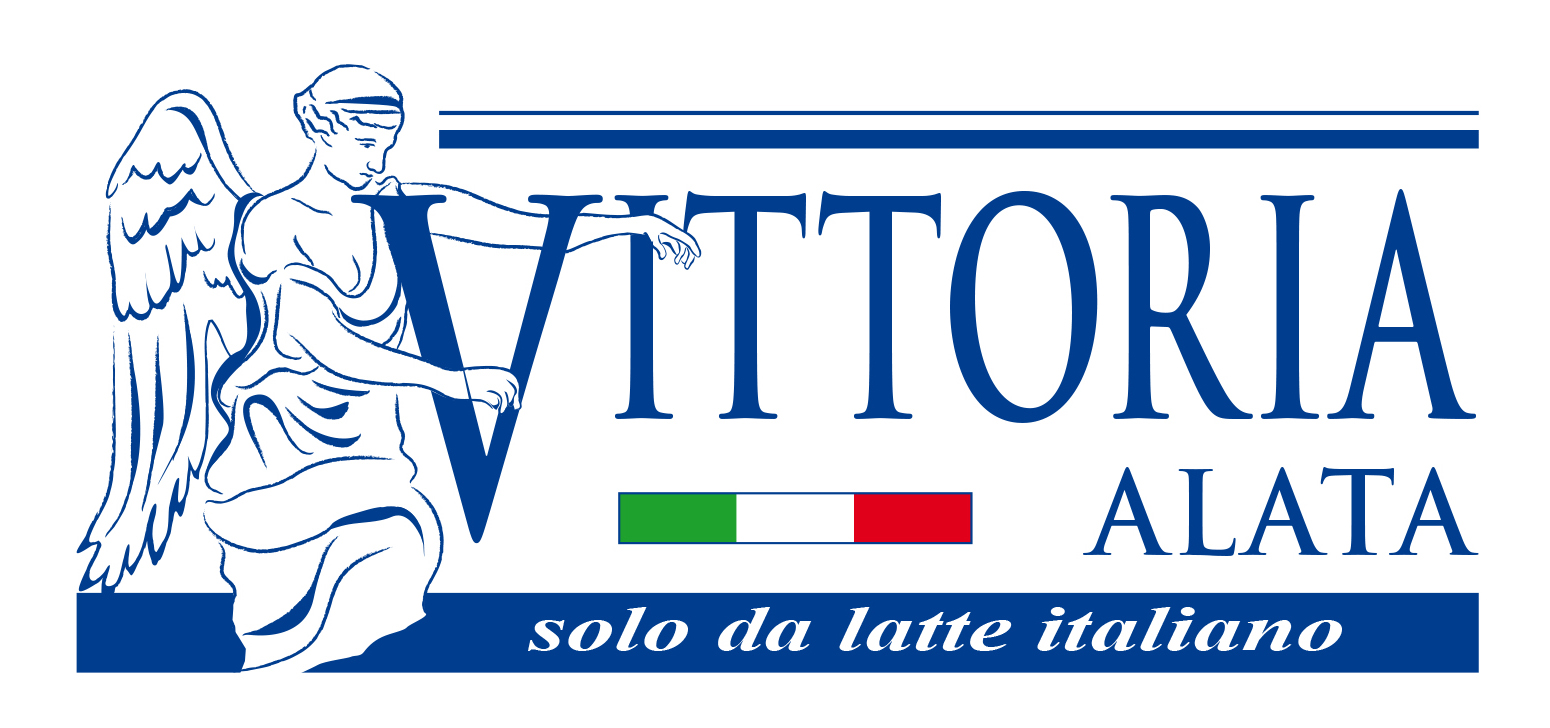CERTIFICATIONS

The Trademark, symbol of
Vittoria Alata cheese

PROTECTED DESIGNATION OF ORIGIN
The “Protected Designation of Origin”, better known by the acronym PDO, is a legal defense brand of the protected designation that is attributed by the EU to the food products whose quality and peculiar characteristics depend essentially or exclusively on the territory where they were produced.
From the Art.2, paragraph 1, letter a, of the EU Regulation number 510/2006:
“designation of origin” means the name of a region, a specific place or, in exceptional cases, a country, used to describe an agricultural product or a foodstuff:
– originating in that region, specific place or country,
– whose quality or characteristics are essentially or exclusively due to a particural geographical environment with its inherent natural and human factors, and
– whose production, processing, and preparation take place in the defined geographical area;”
CSQA
CSQA is a certification company, active in the industries of agri-food, consumer goods, catering, technical and professional services, the PA and personal services. It has a leadership role on a National level in the fields of “agriculture” and “food and beverage”; suffice it to say that the first specification for voluntary certification of the controlled supply chain, created in 2000, is the reference document for the development of UNI 10939, which later became ISO 22005.

HALAL
Halal (lawful): The term Halal is a Qur’anic term meaning ‘lawful’ and, with specific reference to food, is the term by which the Muslim believer’s proper relationship with nourishment is enshrined. With reference to food, everything that is fully permissible for a Muslim to eat can therefore be defined as Halal.
HALAL INTERNATIONAL AUTHORITY guarantees the application of Halal standards throughout the food chain, including reception, preparation, packaging, labelling, handling, transport and distribution.
On 30th June 2010, the Ministry of Health, the Foreign Ministry, the Ministry of Economic Development and the Ministry of Agriculture signed the interministerial Convention to support the initiative called “Halal Italia” to promote the voluntary quality certification for the Italian companies, which guarantees the compliance with the Islamic requirements of the agricultural, cosmetic and pharmaceutical products, under the control of the Ethic Committee, endowed with the Halal certification given by the Italian COREIS (Islamic Religious Community).
The promotion of the Italian high quality is guaranteed by the strict compliance with the international halal standards and the European legislation of the production processes.

CERTIFICATION ACCREDITATION P.R. CHINA
The registration as an exporter that meets the health and hygiene requirements of the Italian and Chinese law is managed according to the Regulations for the Administration of Registration of Foreign Food Plants destined to the imports in the Republic of China, thanks to the Administration for the Certification and the Accreditation of the Republic of China (CNCA).

DEMETER
Demeter Associazione Italia is a private association of producers, processors and distributors of biodynamic agricultural products and foodstuffs.
Partners are those who, by leading their company in accordance with the international standards Demeter standards for production, processing and labeling, have the right to label their products under the Demeter brand.
The Demeter trademark ensures that the labeled foods or their ingredients come from biodynamic crops or farms, which means that these products are double certified (public organic certification and the international private trademark Demeter). “Biodynamics” refers to agriculture that is in tune with nature, land and humans.
Fertilization, cultivation and breeding are be carried out in a manner that respects and promotes the fertility and viability of the soil, while at the same time respecting the typical qualities of plant and animal species. According to the biodynamic method, soil fertility and viability must be achieved by natural means: compost produced from solid farmyard manure, plant material as fertiliser, crop rotations, mechanical pest control and pesticides based on mineral and plant substances.

BIOAGRICERT
Control and certification are the core business of Bioagricert, which has been strongly committed since 1984 to the pursuit of quality, credibility, added value and innovation in organic farming. In addition to the traditional organic farming sector, Bioagricert offers companies the possibility to certify their products and services according to regulations and standards that focus on quality.
Organic farming is a type of farming that takes into account the whole agricultural ecosystem, promotes the biodiversity of the environment in which it operates, and restricts or excludes the use of synthetic products and genetically modified organisms (GMOs).
Organic farming in Europe is regulated at Community level by Reg. Regulation (EC) No 834/2007, which entered into force on 1 January 2009; it provides for a biological certification which can only be issued by EU-recognized certification bodies.

TRACEABILITY INAGRI-FOOD SUPPLY CHAINS
Certiquality is accredited for ISO 22005 certification and carries out the chain traceability audits.
A traceability system is an instrument to guarantee specific characteristics of a product, as it helps to provide more assurance about the Identity Preserved character of a product and/or its components to guarantee and protect the customer and the consumer; this means that it must be able to document the history of a product and/or identify/place it in the food and feed chain.

BRCGS – Food Safety
The BRC Global Standard for Food Safety was established in 1998 to ensure that branded products are produced according to well-defined quality standards and minimum requirements.
It can be compared to a specification binding qualified suppliers to the distribution company.
The BRCGS is one of the food safety standards recognized by the Global Food Safety Initiative (GFSI), an international initiative whose main aim is to strengthen and promote food safety throughout the supply chain.
The standard applies to food processing and preparation companies, and identifies the specific elements of a management system focused on the quality and hygiene and health safety of products, which takes the HACCP methodology as a reference for planning and implementation.
The main elements are:
adoption of good reference practices;
adoption of a HACCP system;
adoption of a management system for qualitydocumentation;
control of standards for work environments, product, process and staff;
existence of appropriate specifications for:
raw materials (including wrapping materials),
finished product, intermediate/semi-finished products (where required),
supplier monitoring,
site positioning,
accumulation, collection and disposal of waste material,
hygiene and organizational standards for staff, process control.

IFS Food
Following the growth of private labels in the food retail sector, the Federation of German Retailers (HDE) in cooperation with the Federation of French Retailers and the Italian Retailers’ Associations, drew up a standard to protect retailers by defining strict qualification and selection criteria for their suppliers.
The IFS standard was developed with the intention of defining safety and quality requirements as well as operational criteria that must be met by companies operating in the food production sector in order to fulfil all obligations under current regulations and for consumer protection.
The IFS standard is internationally recognised within the GFSI (Global Food Safety Initiative)
IFS Food rev 8 covers six primary areas of the business and all of them are considered fundamental to establishing effective processes to ensure product safety and quality.
- Governance and Commitment- review of management’s commitment to support the sustainability of the food safety culture and the quality assurance policy.
- Food safety and quality management system- required to meet legal and food safety requirements as well as customer specifications.
- Resource management- management of human resources, working conditions, hygiene and sanitation to ensure product safety.
- Operating processes- production of safe and quality products according to customer specifications.
- Measurement, analysis and improvement- inspections, process validation and management of complaints and corrective actions.
Food defence plan- protection of the integrity of the company and the products produced.


